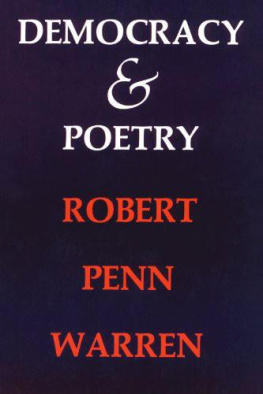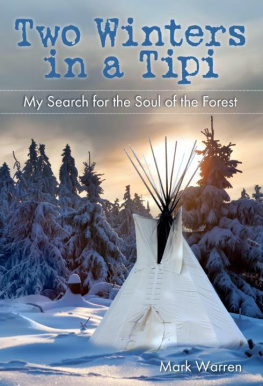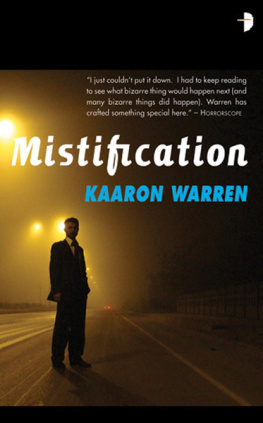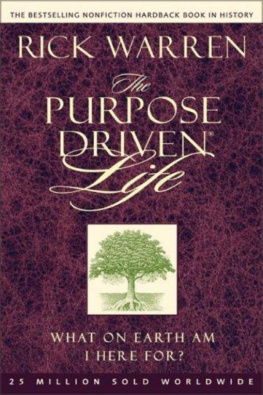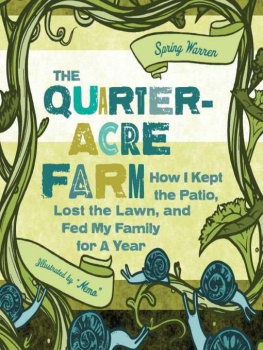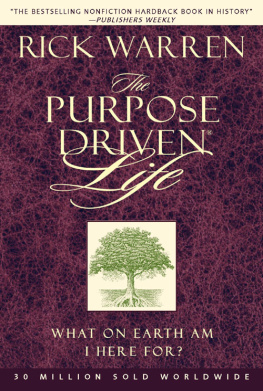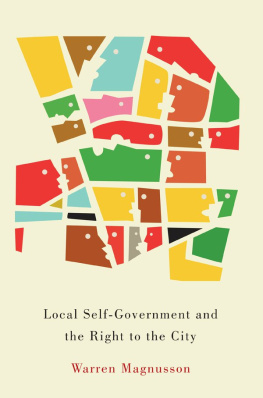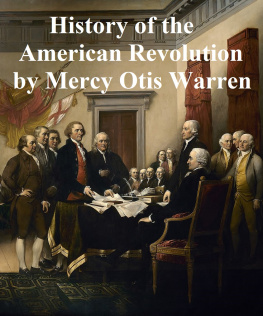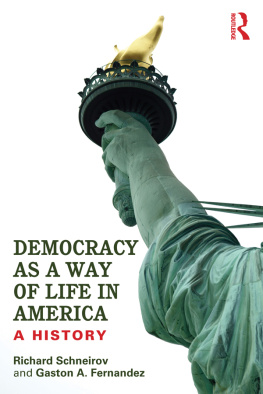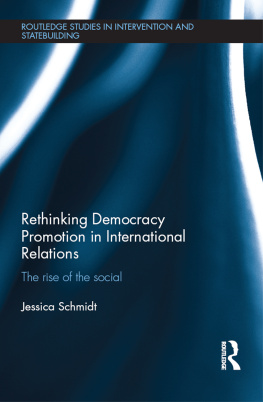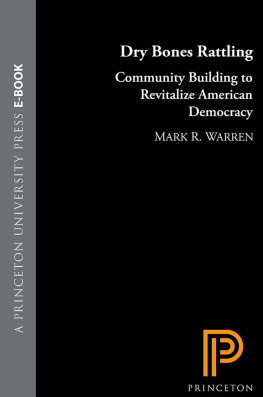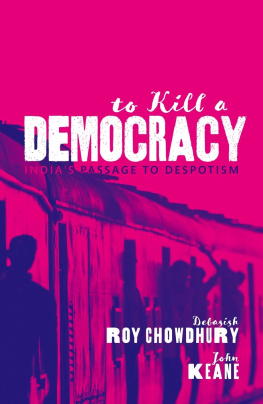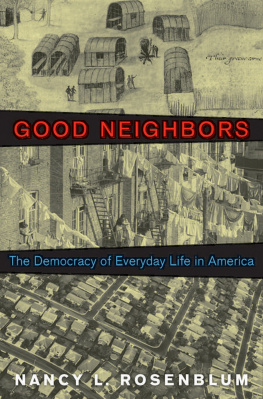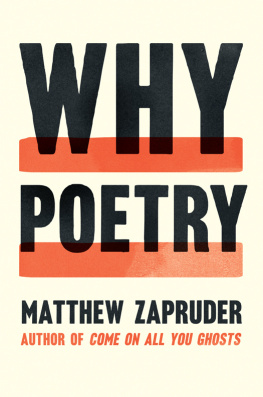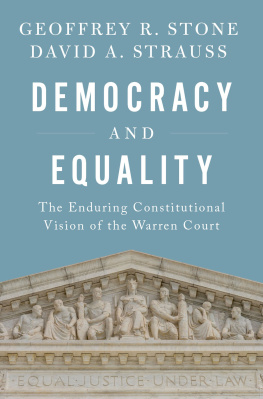R obert P enn W arren
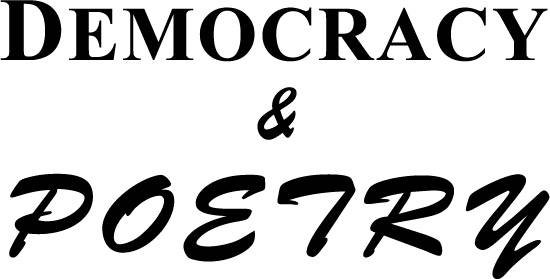
The Jefferson Lecture in Humanities
HARVARD UNIVERSITY PRESS
Cambridge Mass. London
1975
Copyright 1975 by Robert Penn Warren
All rights reserved.
Library of Congress
Catalog Card Number 74-31993
ISBN 0-674-19625-2
Printed in the
United States of America
Contents
Acknowledgments
I am deeply indebted to the National Foundation for the Humanities, under whose auspices these remarks were first presented, as the Jefferson Lecture of 1974, and in a more direct and personal way to Ronald Berman and Robert J. Kingston for their many kindnesses. I take great pleasure also in remembering the combination of good heart and hard editorial eye that I have enjoyed and profited from in Ann Louise Coffin McLaughlin and Aida DiPace Donald of the Harvard University Press.

I also thank the following for permission to quote:
Harper & Rowfor the passage from Tapers of the Adam Family. From Mark Twain, Letters from the Earth, edited by Bernard DeVoto, New York, Harper & Row, 1926.
Mark Twain Memorial, Hartford, Connecticutfor a passage from the letter from Samuel L. Clemens to Sue Crane, March 19, 1893.
Viking Pressfor four lines from The Triumph of the Machine. From The Complete Poems of D. H. Lawrence, edited by Vivian de Sola Pinto and Warren Roberts, 1964 and 1971 by Angelo Ravagli and C. M. Weekly, Executors of the Estate of Frieda Lawrence Ravagli. All rights reserved. Reprinted by permission of The Viking Press, Inc.
Macmillanfor two lines from Two Songs from a Play. From Collected Poems of William Butler Yeats, 1928, by Macmillan Publishing, Inc; renewed 1956 by Georgie Yeats.
Random Housefor the first four lines from The Unknown Citizen, 1940 and renewed 1968 by W. H. Auden. Reprinted from W. H. Auden, Collected Shorter Poems, 1927-1957, by permission of Random House, Inc.
Harvard University Pressfor the lines from Augustine. From Confessions, Book X, Ch. xxiii; translated by W. Watts, Loeb Library edition, Cambridge, Massachusetts, 1912.
R. P. W.
Fairfield, Connecticut
February 16, 1975
To
Andrew Nelson Lytle
and the memory of
Edna Barker Lytle
And it is enough for the poet
to be the guilty conscience of his time
St.-John Perse[]
F oreword
S INCE THE DISPROPORTION between these essays may strike some readers as odd, I should, perhaps, offer an explanation. In working toward the Jefferson lectures, I wrote a mass of notes to myself as well as a continuous discussion. I worked from that mass and finally came out with two related discussions tailored to the accustomed fifty-five minutes10,000 words in all. But in tidying up the actual lectures for publication, I found that, for illustration and clarification, I was drawing on my original reservoir of ideas and formulations as well as adding new ones. For better or worse, that was the process of revision, and one of its results is the lengthy second essay.
The concern of the discussion that follows is the interrelation of three things: democracy, poetry (really art in general), and selfhood. Each of these terms, of necessity, leads through a brambly tangle of definitions. Yet, though I recognized that the problem was serious, I did not begin by trying to frame them, hoping that along the way definitions adequate to the occasion would emerge. For the term democracy this was worked out well enough, I trust. How could anyone miss the issues involved in this big, overshadowing problem of our age? As for poetry, some readers may quite properly object that I reveal myself as parochially of the Western world. This is all too true; but after all, it is with that Western world that we are here primarily concerned, and, again, the definition implied in the discussion may be adequate for the occasion.
When it comes to the notion of self, however, the situation is somewhat different. As we live from day to day, our sense of personal identity seems to require no explanation. We simply live our selfhood. But the concept of self, once scrutinized, is, as I am at least partially aware, enormously complex and problematical. A testimony to this fact is the massive literature on the subject that extends from the early days of the Greek and Hebraic worlds to the most recent article on quickie psychology or handbook on self-help. And I am also aware, even in my slender acquaintance with that literature, that there is no easy and ready orthodoxy. Since there is none, it may be useful, even at this date, to provide the reader with a guiding statement as to what I mean by the self: in individuation, the felt principle of significant unity.
The qualifiers felt and significant demand special comment. By felt I mean that I am here concerned, not with a theoretical analysis as such, but with what a more or less aware individual may experience as his own selfhood, and what he assumes about other individuals. By significant I mean two things: continuitythe self as a development in time, with a past and a future; and responsibilitythe self as a moral identity, recognizing itself as capable of action worthy of praise or blame.
A reader may object that I am here dealing with qualities only sometimes achieved by a self, by an individuated, separate entity. I fully realize that most of us only partially achieve a self of the sort I describe; nevertheless, I must stand on my notions, for I cannot see how a self otherwise conceived can be relevant to either democracy or poetry.

In essays such as these, behind almost every paragraph lies some unargued assumption which may be objected to. Of some of these assumptions I am aware, but undoubtedly there are some of which I am not aware. All I can hope, for both the conscious and the unconscious assumptions, is that, even if they are not acceptable to a reader, they may exhibit some sort of coherence, some internal consistency.
One of my assumptions is so important for my line of thought that I should try to bring it into the open. Let us approach it in the form of the following objection: You talk as though there is some necessary connection between poetry and democracy. But what of great poetrygreat artcreated in periods or under regimes that were anti-democratic?
My answer would run something like this. We cannot discuss democracy or poetry as existing outside of history, as a matter of timeless, unconditioned options. They, like all things that we esteem or abhor, represent developments in time. As for democracy, looking back over history, over a preindustrial world, we can scarcely conceive of the development of civilization without mass labor, often brutalizing and miserable, as the economic base to support an elite of some sort. In such societies, however much the notion may offend our moral sensibilities, we recognize that the slave, the helot, the villein, the serf, the peasant, the untouchable was not regarded as a person at all.
The poetry of such a elite order did, however, develop the conception of selfhood. When the Greeks hit upon the notion of man as the measure of all things, they hit, as a corollary, upon the notion of the self as the central fact of poetry. The notion was, in its manifestations, aristocratic, even heroic. Gods and goddesses, kings and queens, heroes and heroines populate the narrative of Homer, but we recognize them now as human selves of great variety and depth. Sophocles, no more than Homer, arose in what we would call a democratic society, but the figure of Oedipus, in his buskins taller than life and uttering grandly through the hieratic mask, exhibited the struggles of a self trapped in the anguish of its fate.
Next page
